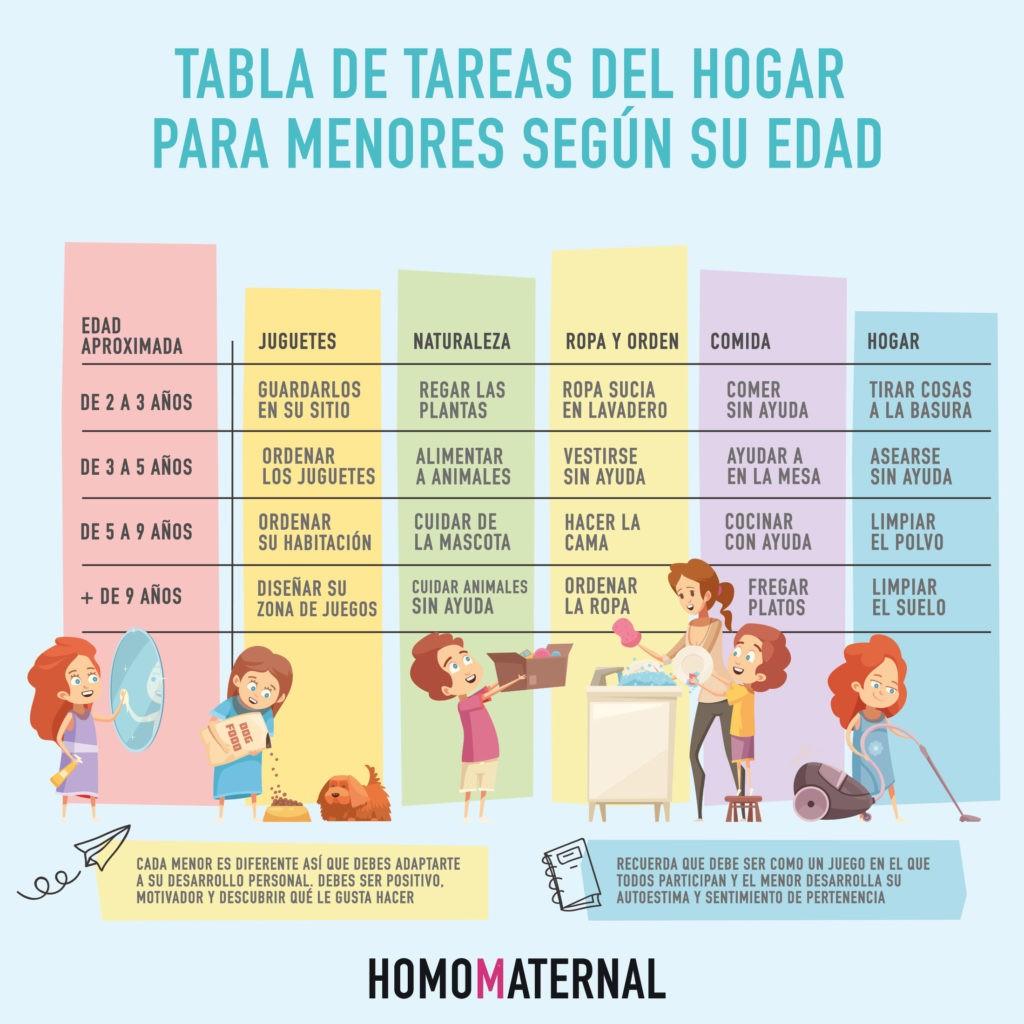At what age should children do housework?
Many parents have become their children's butlers
The dynamic of helping at home has been lost
"How do you want me to eat if I don't have a fork?" "Would you bring me water?" "Why haven't you put bread for me?" The scene is repeated night after night in thousands of Spanish homes. Parents turned into butlers who diligently attend to all the demands of their children.
In the morning, the situation is not very different. Stressed moms and dads who get up on the run to prepare breakfast, make the bed, put the clothes away, order the backpacks, comb their offspring...
The truth is that in many homes children not only do not have any housework assigned, but they simply do nothing. In the opinion of the psychologist Maribel Martínez, a model of complacent education has been installed in today's society designed so that minors live among cotton wool and do not have to carry any uncomfortable work.
"It's sad but the dynamic of helping at home has been lost. Parents don't incorporate the importance of these tasks, but the other way around. They say: 'Poor little thing, he's tired, I'll pick him up'. They end up making them useless", he declares. Martínez, co-author of the book Children without fear.
To all this we must add that the parents have devoted themselves completely to their children's studies, languages and extracurricular activities and have forgotten something essential: teaching them to collaborate at home. What's more, the paradox can be that children speak English and German, practice surfing and snowboarding, dominate chess and piano, but do not know how to make the bed or tie their shoelaces.

Assume responsibilities
Is this overprotection beneficial for them? The answer is no. Educators and anthropologists argue that taking responsibility is a fundamental part of raising children. Learning to do housework and take care of themselves are important skills that they must achieve to be independent and able to function in the future.
However, acquiring responsibility is a long-term process. Precisely, that is one of the most common mistakes that adults make: one day they wake up and decide that their child must do a series of tasks without having done any previous work. Then the boy resists and the endless arguments about who does what begin.
Therefore, the key is to start as soon as possible and show small simple tasks so that they internalize them. Each task must be adapted to the child's age and degree of maturity: "We can give a two-year-old a closed diaper and tell him to throw it in the trash. At three, they are able to carry the bar of bread. At six, they can set the table and at eight, make the bed," explains psychologist and teacher Silvia Álava. In fact, at the earliest ages, children want to help and imitate their elders and it is something that must be taken advantage of.
In Álava's opinion, the important thing is to make it clear to them from the start that housework is a team effort and that the parents are not her servants. "It's not about them having to wax the floor or polish the furniture, but everyone has to pitch in," she adds.
Another of the necessary requirements to begin this learning is to arm yourself with patience. Many mothers spend so much time convincing their children to do the chores that, in the end, they decide to do it themselves. In addition, sometimes they are too demanding and expect the little ones to do the perfect tasks.
"Sometimes the adult, due to lack of time or patience, does not allow the child to tidy up his school backpack, make his bed even if it has wrinkles or cannot carry the glass for fear of it breaking... It is important that if the little says 'I just' let him do it his way and wait for him to ask for help. If not, you are boycotting his autonomy process, "says Yolanda Cuevas, psychologist and mindfulness instructor.
If the previous pedagogical work has not been done, it is never too late to start. First you have to establish a series of rules, agreed upon by the parents, and assign each child a task. If this is not fulfilled, there must be consequences and you have to be firm with them. For example, if the kid does not take the polo shirt to the laundry basket, it will remain unwashed.
And should they have a reward for helping at home? The experts consulted by ZEN consider it a mistake to give them a payment because it means conditioning the performance of the work to financial compensation. It is necessary to instill in them the values of coexistence and make them understand that the whole family benefits from these tasks: for example, all its members need clean dishes to eat or clean clothes to go outside.
In short, children must learn to take responsibility for their tasks and things, and parents must trust them and not underestimate them. Because they are capable of doing much more than we think.
We make a list of the chores that the little ones in the house can do:










Related Articles